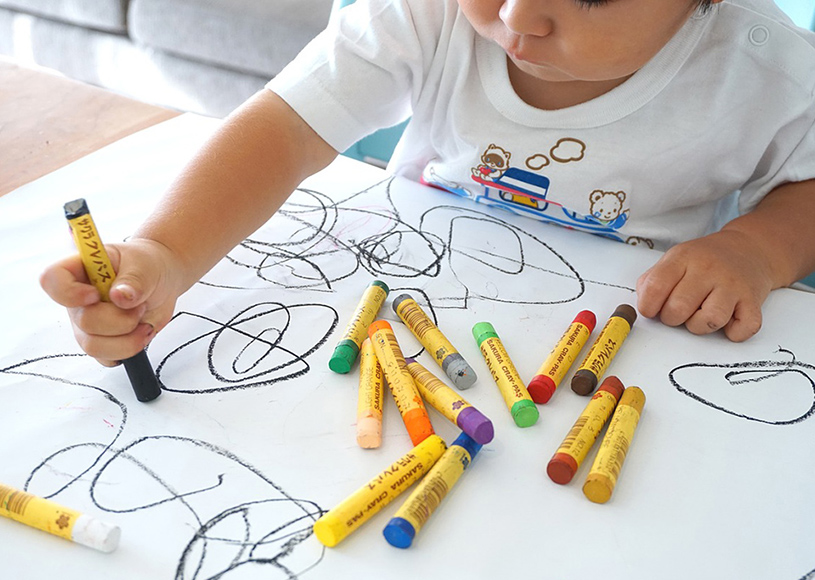A few clever initiatives have opened the way for more parent–researchers to attend academic conferences more easily.
A series of “family friendly initiatives” are set to improve conference accessibility for delegates with young children, particularly women scholars.
Associate Professor Kim Toffoletti, a sociologist within Deakin University’s School of Humanities and Social Sciences, has researched the impact of parenthood on academic careers for primary carers. She has developed the strategies, which she hopes will be adopted by conference organisers around the country.
Despite various university policies aimed at supporting academics with children, few institutions and academic associations have addressed the hurdles that conference participation presents for women scholars with children, she noted.
Responsibilities related to pregnancy, breastfeeding, and caretaking present particular challenges for parent-researchers who wish to fully attend and participate in conference activities.
“This has been an issue of discussion both nationally and internationally in the Higher Education sector,” Associate Prof Toffoletti said.
“Parent-researchers struggle to attend key conferences and further their careers, while finding care for their children.”
The initiatives address a worldwide demand for academic conferences to be more accommodating and inclusive for female parent–academics, in particular.
“Conferences can go for multiple days, with an expectation that participants will be intensively involved throughout, but this doesn’t necessarily fit well with the needs of a family,” she said.
The initiatives have been devised by the Local Organising Committee of the Deakin-hosted 2018 conference of The Australian Sociological Association (TASA), in consultation with Deakin University’s Equity and Diversity Office and TASA. They have been adopted by the TASA conference with over 450 delegates, which is being held at Deakin this November (19 – 22).
“We have already had a number of academics register with their child or an additional carer,” she said.
“Nothing like this has been tried before at Deakin. It’s a first for the University, but even more broadly, these initiatives are believed to be a first for the Higher Education sector in Australia.”
The strategies include the provision of childcare and nanny services (at an extra cost), along with free additions such as dedicated child-friendly spaces and inclusion of children and additional caregivers to attend the conference at no extra cost. Children are able to attend social events with a parent, pram access is provided and a Messenger group has been set up so parents/carers can arrange shared childcare, playdates or advice.
“The free alternatives provide options for carers such as single-parents or low income attendees, where the use of paid childcare services may not be feasible,” she said.
[testimonial_text]Ultimately, all the initiatives help to break down the stigma associated with academic conferences being places where caring is invisible.[/testimonial_text]
[testimonial_picture name=”Associate Professor Kim Toffoletti” details=”Deakin School of Humanities and Social Sciences”]
 [/testimonial_picture]
[/testimonial_picture]Associate Prof Toffoletti’s research into women’s experiences of work-life-balance and how to manage the demands and expectations of being a researcher with care responsibilities formed the basis of the initiatives. Her research indicated that conference attendance involves multiple challenges for female parent–academics.
“Conferences are vital forums for academic researchers. However, women often have to prioritise children over conferences, which means they miss out on important networking opportunities and the chance to workshop their research with others in the field,” she said.
Associate Prof Toffoletti drew on both her own research and experiences as a mother to determine the initiatives.
“My own experiences of attending conferences and having to juggle those demands with small kids meant that not only was I faced with the decision of whether to attend or not, but if I were to attend how would I do that, and how would I be received?” she said.
“The guidelines are a template that anyone can draw on as a resource to build into their conference. A number of other conferences have been directed to the initiatives and are incorporating them into their own conferences processes.
“They are a way of stating that work and care are not incompatible – if you’re a parent with responsibilities, you’re not excluded from these important dimensions of working life.”
Associate Prof Toffoletti said family-friendly conferences will not only benefit primary caretakers, but other parents, the research disciplines themselves (from the valuable intellectual capital retained) and academic institutions.
“Other conferences are now following Deakin’s lead and using the guidelines to encourage conference attendance by primary carers,” she said.
“People shouldn’t have to hide, be stigmatised or disadvantaged by having children.”
For more information about the Family Friendly Initiatives visit here.
Published by Deakin Research on 16 November 2018



